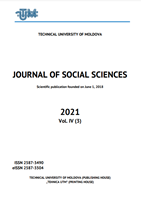CLIL APPLIED TO PRE-UNIVERSITY CHEMISTRY TEACHING IN ENGLISH: BULGARIA AS A CASE-STUDY
CLIL APPLIED TO PRE-UNIVERSITY CHEMISTRY TEACHING IN ENGLISH: BULGARIA AS A CASE-STUDY
Author(s): Lino Bianco, Irina AndonovaSubject(s): Foreign languages learning, School education, Sociology of Education, Pedagogy
Published by: Universitatea Tehnică a Moldovei
Keywords: CLIL; English as a foreign language; chemistry education; bilingual education; scientific literacy;
Summary/Abstract: Content and Language Integrated Learning (CLIL) is bilingual education whereby students do not only study a second language, in addition to their native tongue, but learn a school subject in that foreign language. This study is based on the teaching of chemistry in English to Grade 9 students in the Republic of Bulgaria. Correlation exists between the performance of students in chemistry taught in English with their performance in English in Grade 8 and Grade 9. There is also a correlation between their performance and gender and regarding the second language chosen. In fact, students who opted for Russian and Spanish fared better than those who opted for German and French. More laboratory experiments at school, lessons incorporating interesting games, and stimulating interactive projects were recommended by students as useful tools to improve their scientific literacy.
Journal: Journal of Social Sciences
- Issue Year: IV/2021
- Issue No: 3
- Page Range: 7-17
- Page Count: 11
- Language: English

